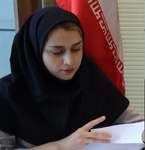The report, entitled “Attack on a Peaceful Demonstration in Kabul, 23 July 2016,” reviews the challenging context of the demonstration, the planning and preparedness of Afghan Security Forces, their behavior during the demonstration and immediate response to the attack and its aftermath. It raises, where relevant, human rights concerns for the Afghan authorities.
The report also discusses the risk mitigation measures that were taken by the Afghan Security Forces and demonstration organizers. It is not intended to replace the Government’s own criminal investigation into the incident. A protest body known as the ‘Enlightening Movement’ organized a large-scale peaceful demonstration in Kabul on 23 July, at the end of which two suicide bombers detonated their explosives’ belts against the demonstrators, the second one misfired and the attacker was shot by Afghan Security Forces. Almost all of the casualties were male and from the Hazara community which is predominantly Shia Muslim.
The report concludes not only that the 23 July attack deliberately targeted civilians with the apparent aim of spreading terror amongst the civilian population but also was a serious violation of international humanitarian law, which may amount to a war crime. The attack was the deadliest single civilian casualty incident in Afghanistan since UNAMA started its civilian casualties documentation in 2009.
The report notes that the attack appears, disturbingly, to h ave deliberately targeted persons belonging to a specific ethnic and religious community. Daesh, also known as Islamic State, claimed responsibility for the attack, employing language that advocated religious hatred and violence. The attack also had a serious negative impact on the demonstrators’ rights to freedom of opinion and expression, as well as peaceful assembly.
The release of the report comes at a time of mounting concern at an emerging pattern of sectarian violence attributed to Daesh. On 11 and 12 October, two separate attacks against Shia congregations commemorating Ashura in Kabul and in the northern province of Balkh killed at least 35 civilians and injured more than 100. Daesh issued an online statement claiming responsibility for the October attack in Kabul using language similar to that used in the claim for the 23 July attack.
UNAMA offers recommendations in its report to promote respect for the fundamental human rights of all Afghans, including the rights of religious and ethnic communities, as well as the need for the completion and implement of a strategy to prevent violent extremism.
The Mission reiterates that international humanitarian law prohibits deliberate attacks against civilians and civilian property, including places of worship.
LR/PR


























Your Comment